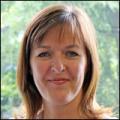By Karen Carruth
I picked up the Christmas issue of The Big Issue and found a really interesting column called ‘A letter to my younger self’ where influential people were asked to write a letter to their 16-year-old self, and offer some wisdom and advice that has been collected over the intervening years.
A simple idea, but one that makes the writer reflect on the passing of time, and how their younger self viewed the world, in comparison to their present view.
The Big Issue has published a book, compiled by Jane Graham, the magazine’s book editor, which holds 100 interviews, and it is available to buy on Amazon with all profits going to The Big Issue.
It set me thinking, if I asked some influential people in the farming and rural sector to do the same, what would their advice be?
Amazingly, I got some willing volunteers and I think their thoughts and advice are both honest and as relevant to a 16-year-old in their day, as it would be to the teenagers of today.
We will publish some more in the coming weeks.
First up is Alan Laidlaw, CEO of RHASS
Letter to Alan Laidlaw, age 16.
When I was 16, I wanted to be a farmer or pro rugby player.
The latter, just becoming a 'thing' in my late teens, but I quickly realised the impact on the body and that realistically my prospects were poor, so my head was turned by my other great love – agriculture.
Without a farm, I realised I needed to review my options, and with the support of some great mentors, I would come to realise there was more to farming than just being a farmer.
I would tell myself that finding that one thing that inspires you so early in life will make things much more manageable.
I was not too fond of school, spending more time looking to escape than I did on work, but finding my niche changed that.
Do what interests you, what excites you and work will be less of a chore.
I learnt more from bad employers than I did from the good, they gave me steel and patience and an appreciation of the bigger picture.
We all have to take some flack and do our time, but I promised I wouldn’t be so harsh to anyone else.
I found a poem, 'If' by Rudyard Kipling when in the thick of one of my first roles. It spoke loudly to me and I would definitely hand a copy to 16-year-old me.
I’d say be kind and realise that everyone, yes everyone, has challenges and problems.
Don’t assume it’s easy for anyone. I would say thank you more and ask for more help from those I admired.
When you do ask, they often say 'yes', if they say 'no', nothing is lost. Nothing ventured, little gained.
Everything that I’m proud of achieving, whether family, work or personally has started from something I wasn’t sure of, should I, shouldn’t I, what if I fail.
You will fail – lots – but the things that will give you the most pleasure in life are the ones that you fought hardest for. Take chances; they might work out.
I’m lucky I didn’t have any weighty expectations from my family, but their support and help is everything to me.
Having recently lost my father, I’d tell myself to cherish those closest to you, be kind, laugh, love and make memories.
Worry less about what others think and more about investing in people, in bonds, whether a mentor, a partner, friend or parent.
And finally, if you want to do it, go for it, be ready to cope with change, take chances, ask for help, but be confident to try things. Life is not a rehearsal, live it.
Excerpts from 'If', Rudyard Kipling :
If you can keep your head when all about you
Are losing theirs and blaming it on you,
If you can trust yourself when all men doubt you,
But make allowance for their doubting too;
If you can dream – and not make dreams your master;
If you can think – and not make thoughts your aim;
Or watch the things you gave your life to, broken,
And stoop and build ’em up with worn-out tools:
If you can force your heart and nerve and sinew
To serve your turn long after they are gone,
And so hold on when there is nothing in you
Except the will which says to them: ‘Hold on!’






Comments: Our rules
We want our comments to be a lively and valuable part of our community - a place where readers can debate and engage with the most important local issues. The ability to comment on our stories is a privilege, not a right, however, and that privilege may be withdrawn if it is abused or misused.
Please report any comments that break our rules.
Read the rules hereComments are closed on this article